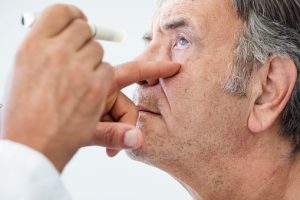
23 habits for healthy vision
1. Eat berries and yogurt for breakfast: Berries, like blueberries, are high in antioxidants, which can fight off free radical damage.
2. Spread bilberry jam on toast: Another powerful berry that can help vision is bilberry, as they contain compounds found to protect vision.
3. Eat spinach throughout your week: On its own or mixed with other foods, spinach contains nutrients that your eyes need to stay sharp.
4. Swap yellow onions for red onions: Red onions have more eye-saving antioxidants than yellow onions.
5. Point car vents away from your eyes: Air blowing directly to your eyes can cause them to become dry. Furthermore, debris can fly into your eyes, causing irritation or even damage.
6. Keep your computer screen below eye level: This will allow your eyes to close slightly, which reduces moisture evaporation so your eyes don’t dry out.
7. Go for walks several times a week: Regular exercise has been shown to reduce the risk of eye pressure in glaucoma patients.
8. Eat fish twice a week: Eating fish has been found to reduce the risk of dry eyes syndrome. Both fresh and canned varieties of fish are beneficial against dry eyes syndrome.
9. Avoid junk food at least twice or week: Cutting back on junk food like chips and cookies can reduce your risk AMD.
10. Eat sweet potatoes: They are high in vitamins that can protect your vision.
11. Reduce the heat in your home: Heat dries out the air, which in turn dries out your eyes. Either turn the heat down or utilize a humidifier.
12. Wear sunglasses whenever you leave the house: Regardless of the temperature, sunglasses should always be worn whenever the sun is out to protect your eyes from harmful UV damage.
13. Wear a large-brimmed hat: For added protection, pair your sunglasses with a large brimmed hat.
14. Eat Southern greens: Similar to spinach, Southern greens contain antioxidants and vitamins to reduce the risk of AMD.
15. Eat beets: Beets contain compounds that protect smaller blood vessels in your body, even the ones in your eyes.
16. Use different salt, or use spices and herbs for seasoning: Consuming salt can raise blood pressure, which can hurt the blood vessels in your eyes.
17. Use essential oils on your arms: Using essential oils can increase beta waves in the brain, which promotes wakefulness and improve focus so that you can see things more clearly.
18. When working or reading, set an alarm every 30 minutes: Looking away from the book or computer screen every 30 minutes helps prevent eye fatigue.
19. Check your blood pressure monthly: As mentioned, high blood pressure can hurt your eyes, so make sure you are monitoring it regularly and doing what you can to reduce your numbers.
20. Replace your eye makeup every three months: Using a mascara or eyeliner for longer than three months increases the risk of infection as bacteria can enter your eye.
21. Always remove makeup before bed: Not removing eye makeup, like mascara, can increase the risk of infection or injury if the mascara scratches your cornea.
22. Always wear protective eyewear when working.
23. Use fresh towels when wiping your face: This can reduce the risk of infection.
Related: 6 tips to improve your vision
[adstoappear]